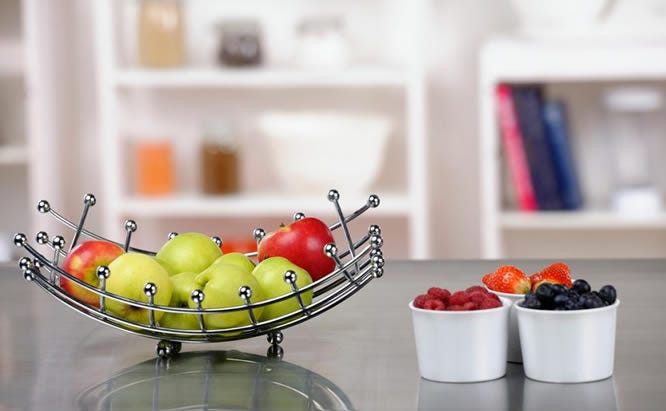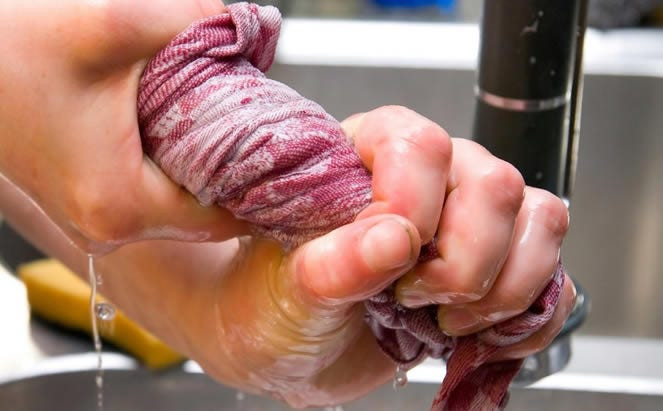Fruit flies, a common nuisance in kitchens and homes, often lead to questions about their life cycle, especially concerning their survival during the colder months; flyermedia.net provides insights into the habits and control of these pests, offering solutions to keep your home fruit fly-free. Understanding how fruit flies cope with winter helps in effectively managing infestations, exploring topics like fruit fly overwintering, temperature impact on development, and preventive measures found on flyermedia.net.
1. What Attracts Fruit Flies?
Fruit flies are attracted to the aroma of ripe or fermenting fruits and vegetables, making kitchens a prime location for them; cleaning supplies and sugary drinks also lure these tiny pests.
Fruit flies possess a remarkable sense of smell, guiding them to their food sources even from a distance. They are particularly drawn to ethylene, a gas emitted by ripening fruits. This is why you’ll often find them swarming around a fruit bowl. Beyond fruits and vegetables, fruit flies are also attracted to:
- Fermented Liquids: Spilled wine, beer, or vinegar can be a significant attractant.
- Trash Cans: Organic waste in trash cans provides an ideal breeding ground.
- Drains: Moist environments with decaying organic matter, such as kitchen drains, are also appealing to fruit flies.
- Damp Areas: Wet mops, cleaning rags, and sponges can harbor the moisture and organic residue that fruit flies need to survive and reproduce.
To minimize these attractions, maintaining a clean kitchen, promptly cleaning spills, and regularly emptying trash cans are essential steps.
 fruit bowl
fruit bowl
2. Can Fruit Flies Make You Sick?
Yes, fruit flies can carry contaminants from unsanitary surfaces to your food, and their larvae, if ingested, may cause stomach upset or illness.
Fruit flies themselves do not bite or sting, the primary health risk associated with them comes from their ability to transmit bacteria and pathogens. They can pick up these harmful substances from garbage, sewage, and other contaminated sources. When they land on food, they can transfer these contaminants, potentially leading to:
- Food Poisoning: Symptoms can include nausea, vomiting, diarrhea, and abdominal cramps.
- Allergic Reactions: Some individuals may experience allergic reactions to fruit flies or their larvae.
- Myiasis: In rare cases, fruit fly larvae can infest open wounds or sores, causing myiasis.
To mitigate these risks, it is crucial to wash fruits and vegetables thoroughly before consumption, store food properly, and eliminate any fruit fly infestations promptly.
3. Where Do Fruit Flies Lay Eggs?
Fruit flies typically lay their eggs on the surface of overripe or rotting fruits and vegetables, as well as in moist, decaying organic matter found in drains and garbage disposals.
The egg-laying habits of fruit flies are a key factor in their rapid reproduction. A single female fruit fly can lay hundreds of eggs in her short lifespan. These eggs are usually deposited in:
- Overripe Produce: The soft, decaying flesh of overripe fruits and vegetables provides an ideal food source for developing larvae.
- Fermenting Substances: Fruit flies are attracted to the fermentation process, which occurs in rotting fruits, spilled beverages, and other sugary substances.
- Sludge Accumulations: Slimy build-up of organic matter and liquids in trash cans, drains, and under appliances offer a protected environment for egg-laying.
Controlling these breeding sites is essential for managing fruit fly populations. Regularly inspect and discard overripe produce, clean spills promptly, and maintain clean drains and garbage disposals.
4. Can Fruit Flies Live In Drains?
Yes, fruit flies can thrive in drains, finding food and moisture; if you suspect drain flies, TERRO® products can help distinguish and eliminate them.
Drains provide an ideal habitat for fruit flies due to the presence of decaying organic matter and constant moisture. Fruit flies can lay their eggs in the slimy biofilm that lines the drainpipes, where the larvae then feed on the organic debris.
- Food Source: Decaying food particles and other organic waste that accumulate in drains provide a continuous food supply for fruit fly larvae.
- Moisture: The moist environment in drains is essential for fruit fly survival and reproduction.
- Protection: Drains offer a sheltered environment that protects fruit flies from predators and harsh environmental conditions.
To eliminate fruit flies from drains, you can use a variety of methods, including:
- Boiling Water: Pouring boiling water down the drain can kill fruit flies and their larvae.
- Vinegar and Baking Soda: A mixture of vinegar and baking soda can help to break down organic matter and eliminate fruit flies.
- Commercial Drain Cleaners: Enzyme-based drain cleaners are effective at breaking down organic matter without harming plumbing.
Regular drain maintenance is crucial for preventing fruit fly infestations. Flush drains regularly with hot water and clean them periodically with a drain cleaner.
5. Do Fruit Flies Die In The Winter?
Cold temperatures will hinder the development of new generations of fruit flies; however, adult fruit flies can “overwinter” and survive until warmer conditions return.
While winter conditions can indeed impact fruit fly populations, it’s not a complete eradication. Here’s a breakdown:
- Temperature Sensitivity: Fruit flies are highly sensitive to temperature. Their development slows down significantly at temperatures below 60°F (15.5°C), and they cease developing entirely below 53°F (11.7°C).
- Overwintering: Adult fruit flies can enter a state of dormancy known as “overwintering” to survive harsh conditions. During this period, their metabolism slows down, and they seek shelter in protected areas.
- Indoor Survival: Fruit flies can easily survive winter indoors, where temperatures are warmer and food sources are readily available. They may also find refuge in greenhouses, cellars, and other sheltered environments.
- Regional Variations: The impact of winter on fruit fly populations varies depending on the climate. In regions with mild winters, fruit flies may remain active year-round.
Therefore, while winter can suppress fruit fly activity, it doesn’t eliminate them completely. Consistent pest control measures are necessary to prevent infestations, even during colder months.
6. Can Fruit Flies Get Through Screens?
Whether fruit flies can pass through screens depends on the screen’s mesh size and condition; openings in the structure or plumbing can also be entry points.
The ability of fruit flies to penetrate screens is a common concern for homeowners. Here’s what you need to know:
- Mesh Size Matters: Standard window and door screens typically have a mesh size of 18×16, meaning there are 18 vertical and 16 horizontal strands per inch. While this mesh size is effective at keeping out larger insects, fruit flies can sometimes squeeze through the openings.
- Screen Condition: Damaged or poorly maintained screens can provide larger openings for fruit flies to enter. Tears, holes, and gaps around the edges of the screen can all serve as entry points.
- Alternative Entry Points: Fruit flies can also enter homes through other openings, such as cracks in walls, gaps around pipes, and improperly sealed doors and windows.
To prevent fruit flies from entering through screens:
- Inspect Screens Regularly: Check screens for any damage and repair or replace them as needed.
- Seal Gaps: Seal any gaps around screens with caulk or weather stripping.
- Consider Finer Mesh Screens: If fruit flies are a persistent problem, consider installing screens with a finer mesh size.
7. Why Are Fruit Flies In My Room?
Fruit flies are drawn to any source of food, even in areas not typically associated with food; thorough cleaning is essential to eliminate attractants.
Fruit flies aren’t picky about their habitat as long as they have access to food and moisture. If you’re finding them in unexpected places like your bedroom, bathroom, or living room, it’s likely due to one of the following reasons:
- Hidden Food Sources: Spilled drinks, dropped crumbs, or forgotten snacks can attract fruit flies to any room.
- Moisture: Damp areas, such as leaky pipes, overwatered houseplants, or humid bathrooms, provide a breeding ground for fruit flies.
- Trash Cans: Even small trash cans in bathrooms or bedrooms can attract fruit flies if they contain food wrappers or other organic waste.
- House Plants: Overwatered soil or decaying plant matter can attract fungus gnats, which are often mistaken for fruit flies.
To eliminate fruit flies from these areas, conduct a thorough cleaning:
- Remove Food Debris: Clean up any spilled food or drinks, and dispose of food wrappers and other waste promptly.
- Dry Damp Areas: Fix any leaks and ensure that bathrooms and other damp areas are well-ventilated.
- Empty Trash Cans Regularly: Empty trash cans frequently and clean them regularly to prevent the build-up of organic waste.
- Monitor House Plants: Avoid overwatering houseplants and remove any decaying plant matter.
8. Will Fruit Flies Die On Their Own?
While fruit flies will eventually die without a food source, waiting out an infestation is not practical; TERRO® Fruit Fly Traps offer a quick solution.
Although fruit flies have a relatively short lifespan (around 40 to 50 days), their rapid reproduction rate can make an infestation seem never-ending. While it’s true that fruit flies will eventually die without a food source, waiting for them to disappear on their own is not a practical solution for several reasons:
- Rapid Reproduction: Female fruit flies can lay hundreds of eggs in their lifetime, leading to a rapid increase in population size.
- Persistence: Fruit flies are highly adaptable and can survive for extended periods without food.
- Annoyance: Fruit flies are a nuisance and can contaminate food, making it unsafe to eat.
Instead of waiting for fruit flies to die on their own, it’s best to take proactive steps to eliminate them.
9. Why Are Fruit Flies In My House Plants?
In houseplants, you might be dealing with fungus gnats instead of fruit flies; fungus gnats live in the soil, while fruit flies resemble smaller, tan-colored house flies.
If you notice small flies hovering around your houseplants, it’s important to distinguish between fruit flies and fungus gnats. Here’s how to tell the difference:
- Appearance: Fruit flies are typically tan-colored with red eyes and resemble small house flies, while fungus gnats are dark-colored and mosquito-like.
- Habitat: Fruit flies are attracted to overripe fruit and other sugary substances, while fungus gnats live and breed in the soil of houseplants.
- Behavior: Fruit flies tend to fly around the kitchen or other areas where food is present, while fungus gnats tend to stay close to the soil of houseplants.
If you have fungus gnats in your houseplants, here are some steps you can take to eliminate them:
- Allow Soil to Dry: Allow the top layer of soil to dry out completely between waterings, as fungus gnats thrive in moist conditions.
- Use Yellow Sticky Traps: Place yellow sticky traps near the plants to trap adult fungus gnats.
- Apply Bacillus Thuringiensis Israelensis (Bti): Bti is a natural bacterium that is toxic to fungus gnat larvae. Apply Bti to the soil according to the product instructions.
- Repot Plants: If the infestation is severe, consider repotting the plants with fresh, sterile soil.
10. How Can I Get Rid Of Fruit Flies?
Use fruit fly traps, thoroughly clean problem areas by removing food sources, and maintain cleanliness to effectively control fruit flies.
To effectively eliminate fruit flies, a multi-pronged approach is necessary:
- Trapping: Fruit fly traps are an effective way to capture and kill adult fruit flies. You can purchase pre-made traps or create your own using a jar, apple cider vinegar, and dish soap.
- Cleaning: Thoroughly clean any areas where fruit flies are present, including countertops, sinks, drains, and trash cans. Remove any spilled food or drinks, and wipe down surfaces with a disinfectant.
- Source Removal: Identify and eliminate the source of the fruit fly infestation. This may involve discarding overripe fruit, cleaning drains, or removing decaying organic matter.
- Prevention: Take steps to prevent future infestations by storing fruit in the refrigerator, cleaning up spills promptly, and maintaining clean drains and trash cans.
 wring rag
wring rag
Fruit Fly Control: A Battle Plan
Understanding fruit fly behavior and implementing targeted control measures are essential for effectively managing infestations; share your experiences and learn more on flyermedia.net.
Now that you have a better understanding of what makes fruit flies tick, here’s a comprehensive battle plan to eliminate them from your home:
- Identify the Source: The first step is to identify the source of the infestation. Look for overripe fruit, spills, and other potential breeding grounds.
- Eliminate the Source: Remove or clean up any sources of attraction. Discard overripe fruit, clean spills, and empty trash cans.
- Trap Adult Flies: Use fruit fly traps to capture and kill adult flies. Place traps near the source of the infestation and replace them regularly.
- Clean Thoroughly: Clean all surfaces in the affected area with a disinfectant. Pay attention to areas where food may have spilled or accumulated.
- Maintain Cleanliness: Take steps to prevent future infestations by storing fruit in the refrigerator, cleaning up spills promptly, and maintaining clean drains and trash cans.
- Monitor: Continue to monitor the area for signs of fruit fly activity. If you see any new flies, repeat the above steps.
By following this battle plan, you can effectively eliminate fruit flies from your home and prevent future infestations.
Frequently Asked Questions (FAQs) About Fruit Flies
1. How long do fruit flies live?
Fruit flies typically live for about 40 to 50 days, depending on environmental conditions.
2. How quickly do fruit flies reproduce?
Fruit flies can reproduce rapidly, with females laying hundreds of eggs in their lifetime.
3. Are fruit flies harmful to humans?
Fruit flies are not harmful to humans in the sense that they don’t bite or sting. However, they can carry bacteria and pathogens that can contaminate food.
4. What is the best way to get rid of fruit flies?
The best way to get rid of fruit flies is to identify and eliminate the source of the infestation, trap adult flies, and maintain cleanliness.
5. Can fruit flies survive in cold weather?
Adult fruit flies can survive in cold weather by entering a state of dormancy. However, their development slows down significantly at temperatures below 60°F (15.5°C).
6. What are fruit flies attracted to the most?
Fruit flies are most attracted to overripe fruit, spills, and other sugary substances.
7. Do fruit flies only live in the kitchen?
Fruit flies can live in any area where they have access to food and moisture.
8. Can fruit flies fly long distances?
Fruit flies can fly several miles in search of food and breeding grounds.
9. Are fruit flies the same as drain flies?
No, fruit flies and drain flies are different species of flies. Drain flies are typically found in drains, while fruit flies are attracted to overripe fruit.
10. How can I prevent fruit flies from entering my home?
You can prevent fruit flies from entering your home by sealing cracks and gaps, repairing damaged screens, and storing fruit in the refrigerator.
Addressing these common questions can provide a comprehensive understanding of fruit flies and effective strategies for managing them.
If you’re struggling with fruit flies or any other pest issues, flyermedia.net offers a wealth of information and resources to help you identify, control, and prevent infestations. From detailed articles to expert advice, flyermedia.net is your go-to source for all things pest control. Visit flyermedia.net today to learn more and take control of your home environment.
